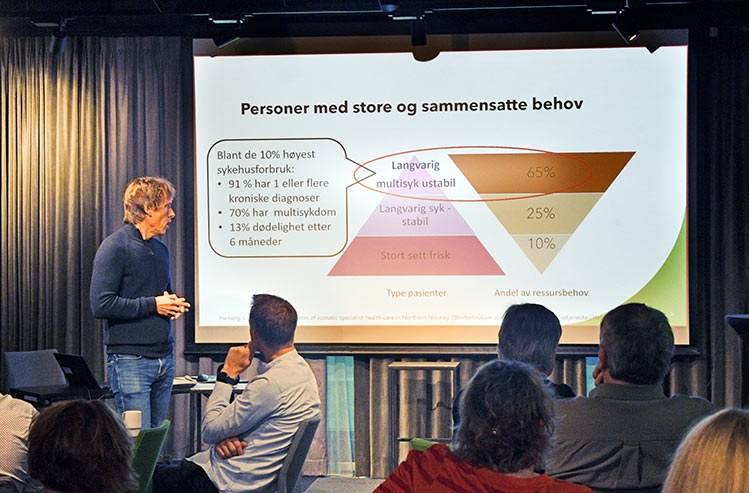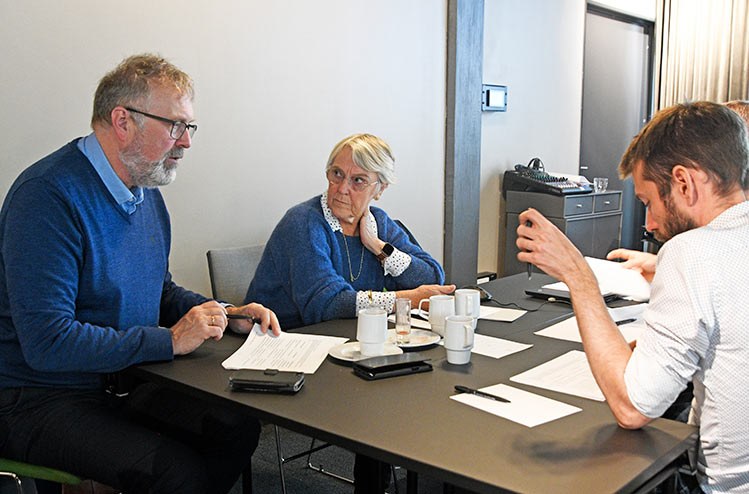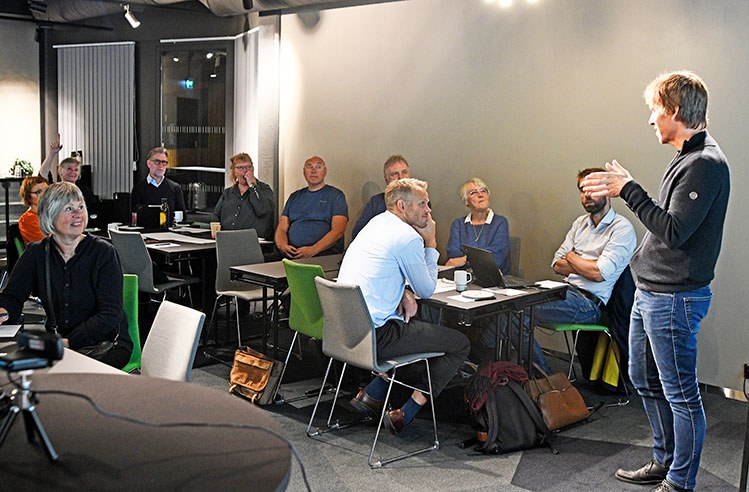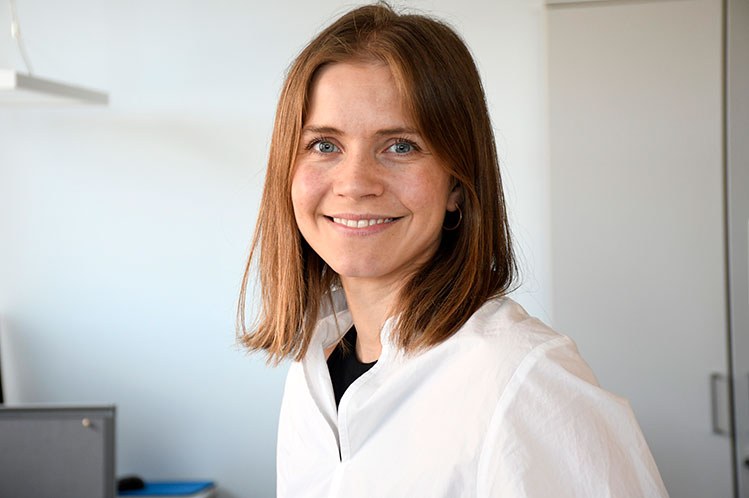Presented prototype of DigiTeam
The Dignity Care research project aims to find out what kind of standard content and functionality should be in place in collaboration tools for the health service. To achieve this, they are in the process of developing a prototype they call DigiTeam.

Ideally, they want all public services to be able to interact with and around a person with many different diagnoses and care needs in a digital tool. But Dignity Care has chosen to start by creating patient cases that only the health service will interact with. These are based on real patients and incidents.
Testing the effect
- Initially, we would have liked to include more services in the prototype, but it was simply too difficult to achieve at this stage. Just getting hold of and preparing patient records from municipalities and hospitals for use in the prototype is extremely time- and resource-intensive. Many of our patient partners have more than a thousand pages in their patient records, and most of it is delivered on paper," explains project manager Gro Rosvold Berntsen of Dignity Care. She is a professor at the Norwegian Center for E-health Research (NSE). Berntsen has been researching and addressing how the health service treats, and not least interacts with, chronically ill patients for a number of years.
To test what a digital tool must contain as a minimum for healthcare professionals with different tasks to interact well, Dignity Care will conduct a randomized controlled research study (RCT). Healthcare professionals participating in the study will be divided into two groups: One group will solve a collaboration challenge with access to common tools. The other group will solve the same challenge using DigiTeam. The researchers then compare how the groups solve the tasks. Actors will play the different patients who need collaborative services.
- Solving the challenge of achieving good collaboration for patients with multiple and chronic diagnoses is difficult. We can already see that we can't include everything we want, but we can't let the best be the enemy of the good, summarizes the project manager.
Four patients and two relatives are participating in Dignity Care. These are people who experience the daily challenge of not only having to cope with a life with multiple chronic conditions and extensive help needs, but also having to spend a lot of time and effort on either getting hold of the right help or making it work appropriately.
- The goal is to recruit more people, especially those who have services from both the municipality and hospital, so that we can reach a total of 10 patient partners, says Berntsen.

DigiTeam testing in 2023
The research project is divided into different work packages. So far, patient histories and patient record documents have been collected. At the same time, the development of the prototype is in full swing.
- The plan is for the prototype to be completed in the first quarter of next year, and for the RCT to start in the third quarter of 2023, says Aslak Steinsbekk. He is the project's deputy leader and works as a professor of medical behavioral sciences and health services research at NTNU.
The research group in Dignity Care has a broad composition with researchers from NSE, NTNU and Sintef. In addition, they have established an extensive network of partners from both the public and private sectors, including the Norwegian Directorate of Health, the Norwegian Health Network, the Norwegian Association of Local and Regional Authorities, the Health Platform, DIPS, Helse Nord and Tromsø Municipality.
Torbjørn Torsvik at NSE is primarily responsible for the development of the prototype. Different types of information will be filtered and made available. A lot of it is about getting the tool to provide a quick and relevant overview, whether the user is a specialist at the hospital or an assistant in the home care service.
- In our project, we'll be collecting data from many different sources, but you may not get a better overview if you have access to everything! For example, we have a patient record that alone is 2,200 pages long. We're talking about Harry Potter, volumes 1, 2, 3 and 4! Torsvik smiles and continues:
- It will be important to be able to quickly retrieve information that is relevant to what is happening with the patient right now. But even if we make it possible to filter out information, you will never lose what you filter out. You will still have access to it, Torsvik explains.
The participants in Dignity Care must also clarify important principles and elements for the research study. For example, how interaction will be measured in the RCT. In addition, they discuss how the patient's voice should be considered in DigiTeam.

Provide a «table of contents»
The final delivery from Dignity Care will not contain a prototype, but an ideal functional description for a digital collaboration tool designed for complex patient pathways. A kind of table of contents of what should be in place as a minimum.
More people, not least the ICT industry, are beginning to realize that the health service needs tools that both help them and force them to work smarter with the most complex patients. This patient group is relatively small, according to research around 10 percent of all patients in Norway. But poor organization and little collaboration means that the health service spends about 65 percent of all its resources on this small patient group!
When a team coordinates efforts, they manage to prevent acute events, and the patient can often stay at home and manage well. Without coordinated services, patients are more likely to develop serious illnesses and require emergency hospitalization. Research shows that when patients receive coordinated healthcare services, 43 percent of them live longer than patients who receive regular healthcare services.
- One of the most important things we at Aidn can work to achieve is collaboration across services and different professional roles. We need to ensure that the different roles see the same overall picture of the patient and can work towards a common goal. Only then can we avoid services sitting in 'silos' and working in a piecemeal and divided way, says Åshild Drønen Herdlevær. She is a service designer at Aidn, a new Norwegian company that is trying to rethink the content of a patient record. Aidn is a company in the same group as DIPS, and is one of the partners in Dignity Care.
